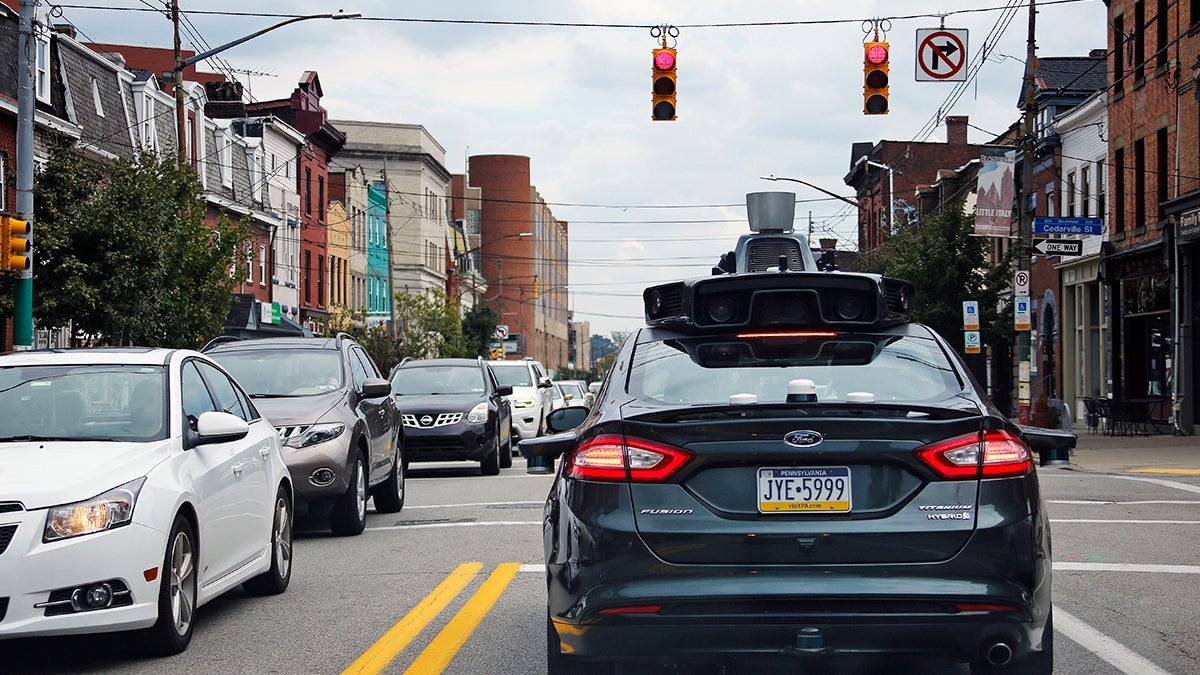Finding new partners to build smart cities for the future

Self driving cars from Uber hit Pittsburgh streets in September 2016. At the U.S. Conference of Mayors in Washington
State and federal funds are at a premium. So how can cities push forward?
Autonomous vehicles, ubiquitous broadband internet, improved energy systems — attendees at the U.S. Conference of Mayors buzzed with the potential technology in store for their cities.
In the 20 years the internet has existed, it has revolutionized the way we interact with the world, said Joanne Hovis. She’s president of CTC Technology & Energy, an IT consulting firm in Maryland. She said communities that prioritize global access to the internet spur innovation and entrepreneurship.
“There’s increasingly this understanding that the broadband internet is the platform over which our economy and our democracy ride. And that is growing every single day.”
Some governments own all the land they’d have to dig up to install broadband, and could get started right away. Some states, including Pennsylvania, have laws that limit municipalities’ ability to take the lead on broadband. Regardless, it can be a wildly expensive endeavor, said Hovis. But a city DIY install is not the only way to build a network, she said. Local governments can ease the permitting process to make it less complicated for a private company to get started, for example, or partner with private companies to build a network.
Forging new partnerships was a central tenet of the U.S. Department of Transportation’s Smart City challenge. Columbus, Ohio was awarded the $50 million prize. That money won’t magically allow the city to solve all its problems, said Columbus mayor Andrew Ginther. What it has allowed them to do is attract more than $500 million in private funding.
The city will use smart sensors to improve traffic flow, as well as build out the transit system, reconnecting neighborhoods and making it easier to get to jobs and health care, among other initiatives. But it’s not enough to have the technology, said Ginther.
“The greatest challenge of the 21st century is to leverage innovation and technology to help people improve their own lives. I mean, that’s the point.”
Pittsburgh Mayor Bill Peduto agreed. He said negotiating local partnerships is the new funding reality for cities.
“You create a game plan, a long-term vision. Then going to those organizations and asking not for their corporate side but their civic side.”
Pittsburgh was a finalist in the Smart Cities challenge, working with institutions such as Carnegie Mellon University as well as ride-sharing and autonomous vehicle company, Uber to create its application. The city is still negotiating with Uber to find a shared, long-term vision. Peduto said he’d like to see them become a true partner.
WHYY is your source for fact-based, in-depth journalism and information. As a nonprofit organization, we rely on financial support from readers like you. Please give today.


